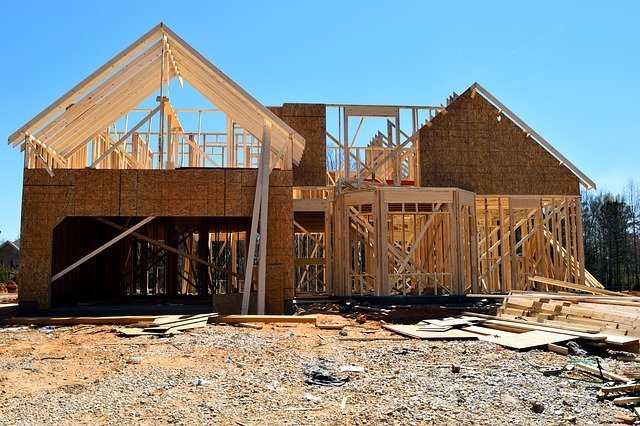Many people want to have a home of their own home. Being a homeowner is one of your accomplishments.Most folks need a mortgage to buy a house.
Avoid accepting the largest loan amount for which you qualify. What you can afford to spend will be less than what they offer you. Consider your lifestyle, the way your money is spent and the amount you can reasonably afford.
Don’t be tempted to borrow the most expensive house you are approved for. Consider your income and what you are able to afford.
Get all your financial paperwork in order, before going to your mortgage appointment at the bank. If you don’t bring all the right paperwork, the visit may be pointless. Your lender is going to need all of this. Having it handy will make things more convenient for all involved.
Before applying for a mortgage, check your credit report to make sure that there are no errors or mistakes. Credit standards are becoming even more strict, so make sure that your credit is free of any errors that could prove to be costly.
It is advisable that you remain in contact with your lender, even when your finances are in trouble. You may want to give up when it comes to your loan, but lenders are usually willing to work with you. Contact your lender and inquire about any options you might have.
Even if you are far underwater on your home, the new HARP regulations can help you get a new loan. This new opportunity has been a blessing to many previously unsuccessful people to refinance. Check to see if it could improve your situation; it may result in lower payments and credit benefits.
While you wait for a pre-approved mortgage, do not do tons of shopping. Lenders recheck credit before a mortgage close, and they could change their mind if they see a lot of activity. When your mortgage contract has been signed, then you can begin shopping for furnishings and other necessities.
Make sure to see if your home or property has gone down in value before seeking a new loan. Even though you might think everything is great with your home, the bank might determine the value of your home in function of the real estate market, and that may hurt getting approved for the mortgage.
If your financial situation changes, you may not be approved for a mortgage. Do not apply for any mortgage prior to having secure employment. If you’re in the process of trying to get a loan, make sure you don’t switch jobs before you’re given one. Lenders will look to see how long you’ve been in your job position.
Don’t despair if you have a mortgage. Every lender has their own criteria you need to meet in order to get loan approval. This makes it a good idea to apply with a bunch of different lenders in the first place.
Be sure to figure out if you have had a decline in the price of the property you own prior to getting a mortgage. There are many things that can negatively impact your home’s value.
Make sure that you have all your financial documentation prior to meeting a mortgage lender. Your lender is going to require income statements, some bank statements and some documents on your different financial assets. Being organized and having paperwork ready will speed up the application process.
If you’re denied the loan, don’t despair. Try another lender to apply to, instead. Every lender has it own criteria that the borrower must meet in order to get loan approval. This means it is a good idea to apply with a few different lenders.
This will itemize the closing costs as well as any other fees. Most companies share everything, there are lenders that may try to include hidden charges in your closing costs.
Keep an eye on interest rates. The interest rate is the single most important factor in how much you eventually pay for the home. Understanding interest rates will help you understand the total financing costs. If you don’t understand them, you’ll be paying more than necessary.
Figure out what kind of mortgage type you need. There are several different types of home loans. Knowing about these different loan types of mortgages and comparing them makes it easier to decide on the best decision for your situation. Speak to your financial institution about the different types of mortgage programs that are out there.
When you have a mortgage, attempt to pay more of the principal than you need to every month. This helps you reduce your principal quickly. For instance, paying just an extra $100 every month can lower your term by ten years.
Minimize your debts before attempting to purchase a home. A home mortgage will take a chunk of your money, no matter what comes your way.Having minimal debt will make it easier to get a home mortgage loan.
Mortgage loans that have variable interest rates are not a good idea for most buyers. The main thing that’s wrong with these mortgages is that they mirror what is happening in the economy; you may be facing a mortgage that’s doubled soon because of a changing interest rate. You could possibly lose your home if you can’t afford it.

Once you get a mortgage, you should pay a bit above the interest every month. This will help you pay the mortgage off much faster. Paying only 100 dollars a month on your loan can actually reduce how long you need to pay off the loan by ten years.
If you want to pay a little more for your payment, consider a 15 year loan. With the shorter loan term you get reduced interest rates that allow you to pay it down much quicker. They can save you thousands of dollars over the typical 30-year mortgage.
Avoid Lenders
Remain honest through the whole loan process. If the words out of your mouth are anything but truthful, you risk a loan denial. If a lender can’t trust you to tell them the truth, then they likely won’t want to lend you money.
Learn how to detect and avoid a shady home mortgage lender. Avoid lenders who talk smoothly and promise you into a deal. Never sign loan documents with unusually high or too low. Avoid lenders that say there is no problem if you have bad credit. Don’t work with any lender who encourages you to lie.
In a lending market that’s tight, you should keep a high credit score to get the best mortgage rate out there. Request a copy of your credit report from all three credit reporting agencies, and check to make sure it is accurate. Many banks are avoiding scores that are lower than 620.
Open a checking account and contribute to it generously prior to submitting an application for a mortgage. You will need money for things like inspections, credit reports and closing costs. The bigger the down payment you can make, the less you have to pay in interest later.
Remember that a good credit score is key to getting great mortgage terms and conditions. Know what your credit rating is. Correct errors in the report, and try improving the rating. Consolidate small obligations into one account that has lower interest charges and repay it quickly.
Interest Rate
When looking for a mortgage, compare the offers available from several brokers. Clearly, you are interested in finding a low interest rate. Also, you need to investigate different types of loans. You should also add to your consideration the costs of closing and various other fees that are associated with buying a home.
There is more to choosing a loan than just the interest rate. Different lenders tack on different types of fees.Think about the points, expenses associated with closing a mortgage loan and points that you may need to pay to bring your interest rate down. Get quotes from several financial institutions before making a decision.
Don’t ever be worried to wait on things for a while in case a better offer on a loan comes up. There are actually certain months and seasons where getting a loan is better for you. Additionally, you may get a better deal if new laws are passed. Remember that it is not a good idea to hurry into a loan.
If a lender approves you for a larger amount than what is affordable for you, you will have some wiggle room. This could cause you a big headache in the line.
Look at what other banks are offering and then you can negotiate with your current mortgage holder. You will see that nontraditional financial institutions sometimes offer lower interest rates than do traditional banks. Discuss the options you discover with your lender, and see if you can’t convince him to give you a better deal.
The best way to get a better rate is to comparison shop. Many online lenders could offer lower rates than what a traditional bank will. Use these as you pursue a better interest rate with your preferred lender.
Research any prospective broker with the BBB. Brokers who are predatory will resort to tricks to get you to pay higher fees to earn themselves a higher commission. If a broker wants you to pay excessive points or high fees, be cautious.
You don’t need to rework everything if you’ve been denied you; simply move on to the next lender. It is likely not be your fault; some lenders have a reputation for being picky. You may find the next lender accepts you readily.
Switch lenders cautiously. A lot of lenders will give better terms and rates to their loyal customers than to new ones. Some waive interest penalties, offer free appraisals and many other different perks.
You should now have a better picture of what path you should take to get a home loan. Use what you learned from this article. You will feel better about the decisions you make regarding your financing as a result.
Always have an inspector that’s independent to come check out your home. Naturally, your lender’s inspector will work for the good of the lender. You need an inspector who will work for you. No matter if the lender balks, you really do need to get an independent inspection.






